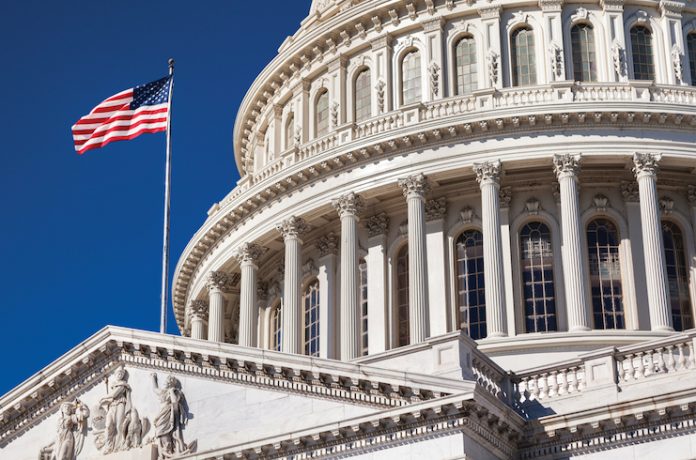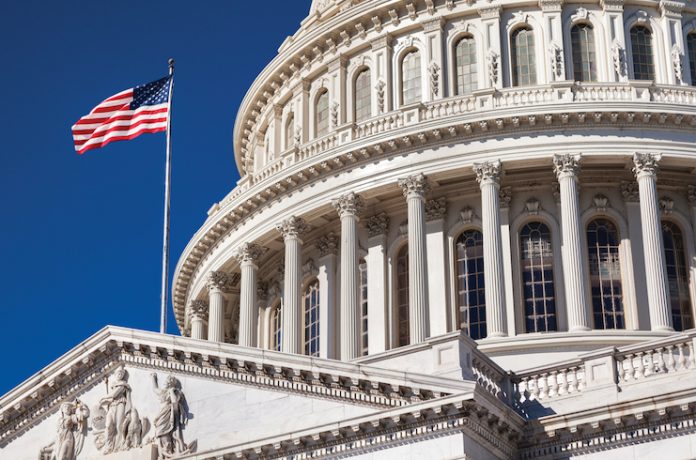Table of Contents

2022 was a banner year for hotels and our nation.
For the second year straight, we moved closer to recovery and farther away from the throes of the pandemic. And thanks to the support of more than 30,000 of the best members in the world, the American Hotel & Lodging Association was able to rack up another year full of impressive advocacy accomplishments.
Federal Advocacy
Over the past year, AHLA’s Federal Affairs team focused on addressing the industry’s leading challenges, resulting in the following positive changes:
- Staffing shortages continue to threaten hotels’ ability to meet demand. And AHLA scored a big win on this front in October, when the Department of Homeland Security announced plans to release an additional 64,714 H-2B temporary nonagricultural worker visas for fiscal year 2023. This represents the single largest expansion of the H-2B cap in recent history. And because the announcement came well in advance of the filing deadlines for applications for both the winter and summer seasons, it gives hoteliers time to develop plans for using the visas.
- Government travel is another essential source of business for U.S. hotels, supporting tens of thousands of jobs and billions in spending. Each year, the General Services Administration (GSA) updates federal per-diem rates, which not only determine spending on federal government lodging purchases, but also influence private-sector reimbursement rates. Working this year with the GSA, the Biden administration, and Congress, AHLA helped negotiate fair per-diem rates that account for the hotel industry’s uneven recovery. Thanks to AHLA’s advocacy, GSA increased the FY2023 standard per-diem rate for the continental United States, and rates for the 316 nonstandard areas will be at or above FY2022 rates.
- Throughout the last year, federal pandemic recovery and environmental programs pumped trillions of dollars into the economy. To offset these significant spending increases, Congress looked to pay for these new programs by eliminating investment-focused tax provisions and increasing taxes where possible. AHLA pushed congressional leaders to preserve like-kind exchanges and prevent changes to how capital gains and estate taxes are levied. AHLA also advocated for tax credits to help reduce costs and protect hoteliers’ bottom lines by accelerating deductions for energy-efficient improvements on commercial buildings and incentives for electric vehicle charging stations, as well as reducing tax liabilities for installing solar technologies.
- Inbound international travel is vital to the health of the U.S. hospitality industry, and throughout 2022, AHLA joined coalition partners to fight for policies that would make visiting the United States easier and increase tourism volume. AHLA consistently urged the Biden administration to change its out-of-date requirement for international travelers to test negative for COVID-19 before entering the United States. The change took effect in June, removing a key roadblock to hotel recovery. AHLA also helped secure $250 million in funding for Brand USA—a public-private partnership dedicated to increasing international tourism to the United States.
State and Local Advocacy
Over the last two years, AHLA has tripled the size of its state and local government affairs team, and those investments continued to pay off this year. By partnering with state and local lodging associations, AHLA achieved several breakthrough victories, including the following:
- In Los Angeles, AHLA coordinated a multidimensional advocacy campaign led by California Hotel & Lodging Association President & CEO Lynn Mohrfeld in partnership with the Hotel Association of Los Angeles, the Asian American Hotel Owners Association, and the National Association of Black Hotel Owners, Operators & Developers. The effort culminated in a unanimous August Los Angeles City Council vote to delay a measure that would have required hotels to house homeless individuals alongside paying guests. Instead, voters will decide the issue in the next general election, likely in March 2024.
- Georgia Governor Brian Kemp signed the “Protecting Georgia Businesses and Workers Act” (SB 331) into law in May, ensuring private employee work hours, scheduling, and output are only regulated at the state or federal level. Championed by AHLA and the Georgia Hotel & Lodging Association, this legislation prevents local governments in the state from establishing a patchwork of inconsistent labor mandates. The landmark law sends a strong message to other states and localities that the hospitality industry will fight onerous labor mandates that damage small businesses, threaten jobs, and hinder the industry’s recovery.
- In a significant victory for AHLA and the Arizona Lodging & Tourism Association, Arizona Governor Doug Ducey signed SB 1168 in July, amending a 2016 law that prohibited Arizona cities, towns, and counties from regulating short-term rental properties in their respective jurisdictions. Now, these localities are once again permitted to require short-term rental owners to adhere to the same tax and regulatory standards as hotels.
In 2023, AHLA will continue to work with partners, engage members, and invest in advocacy at every level of government to advance the priorities that matter most to hoteliers, hotel employees, and our industry’s continued march to recovery.

